After acquiring the Fekola gold project in southwestern Mali through a merger with Papillon Resources in 2014, B2Gold (TSX: BTO; NYSE-AM: BTG) started building the mine in 2015 and poured first gold in 2017.
In 2018, its first full year of commercial production, Fekola produced 439,068 oz. gold at cash-operating costs of US$337 per oz., and all-in sustaining costs (AISCs) of US$533 per ounce.
In addition, B2Gold increased Fekola’s resources in October 2018 to 92.81 million indicated tonnes grading 1.92 grams gold per tonne for 5.73 million contained oz. gold, and 26.50 million inferred tonnes grading 1.61 grams gold for 1.37 million contained oz. gold. The resource is open to the north and down-plunge.

Fekola project location map. Credit: B2Gold.
The new resource extends the pit boundary 1.2 km north, and prompted the gold producer to launch a preliminary economic assessment (PEA) on the viability of increasing the mining rate and expanding throughput at the mill.
In March 2019, B2Gold completed the PEA, which, based on the larger resource, recommends an expansion of mill throughput to 7.5 million tonnes per year from the current base of 6 million tonnes per year.
“The results of the PEA on the expansion of Fekola were extremely robust, and it has been a no-brainer,” Clive Johnson, B2Gold’s president and CEO, declared on the company’s first-quarter conference call on May 8.
The PEA expansion would extend the mine life to 2030, even with the higher processing rate. The study points to annual gold production averaging over 400,000 oz. per year over the new life-of-mine, including 2019, with over 550,000 oz. per year over five years between 2020 and 2024.
“Given our view of the preliminary economic assessment that we filed, we think that it is going to make a significant increase in production, and we talked about averaging 550,000 oz. per year for five years starting next year, but we haven’t done the detailed mine plans,” Johnson said. “Those will come later in the year.”
Despite mining a larger open pit at slightly lower gold grades, the PEA envisions revised life-of-mine cash-operating costs and AISCs of US$465 and US$725. Low costs could last through the extended mine life, due to economies of scale from higher mining and processing rates, and the optimized mining schedule.

Haul trucks in the pit at B2Gold’s Fekola gold mine. Credit: B2Gold.
The study says that expanding the processing plant would cost US$50 million over 18 months, with half the capital spent in 2019, and the rest in 2020. The funds would come from the mine’s existing cash flow.
The expansion would involve increases to the ball mill power, and upgrades to other components, including a cyclone classification system, pebble crushers and more leach capacity to support the higher throughput rate.
To feed the expanded mine, the company plans to upgrade the mining equipment by US$60 million, which will be paid over five years as a lease.
In parallel with the expansion, B2Gold is studying the addition of a solar power plant, which may trim costs and carbon emissions, although Fekola’s power supply is enough to support the mill expansion. Fuel for the project makes up 30% of production costs, which is shared between the mining fleet and the mill.
B2Gold plans to finish an updated life-of-mine plan by the end of the fourth quarter of 2019. In the meantime, it continues to drill to convert inferred resources into the indicated category.
In addition, it plans to start a large exploration drill program at Fekola in the third quarter of this year to test the Fekola North, Fekola South, Cardinal and Anaconda zones.
“We’re pretty excited about the ultimate potential of Fekola above and beyond large resources we’ve drilled so far,” Johnson said on the conference call. “That’s a real focus.”
This year, Fekola is on track to produce between 420,000 and 430,000 oz. gold at cash operating costs of US$370 to US$410 per oz., and AISCs of US$625 to US$665 per ounce.
Johnson said on the call that B2Gold is not interested in mergers and acquisitions (M&A), and prefers to focus on its own pipeline of projects.
“For four and a half years, I have been saying we’re not seriously looking at M&A. So let’s say it one more time: we’re not seriously looking at M&A,” Johnson declared. “We’ve a pipeline of projects [and] we’re very excited about the potential to build them … some of it’s pretty immediate. One is, of course, the expansion at Fekola, which is underway. We expect it to kick in next year.”
Fekola, 500 km west of the capital city Bamako, near the border with Senegal, is owned 80% by B2Gold and 20% by the state of Mali.

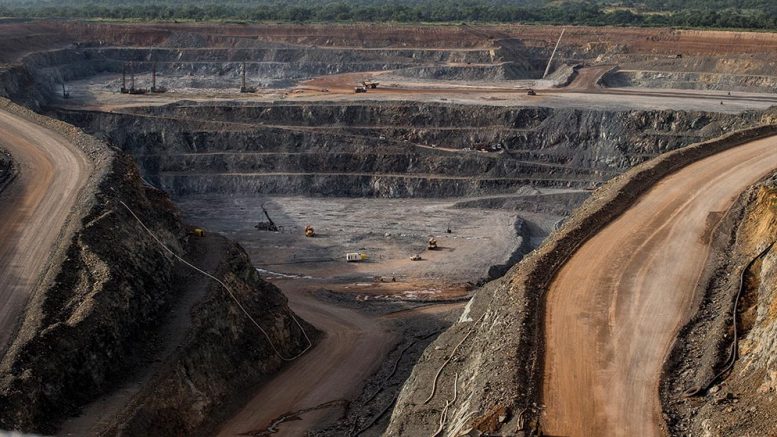
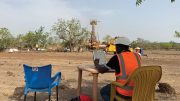
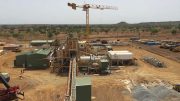
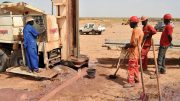
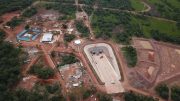
Hope your employees are safe there. Not good news from Burkina Faso today.